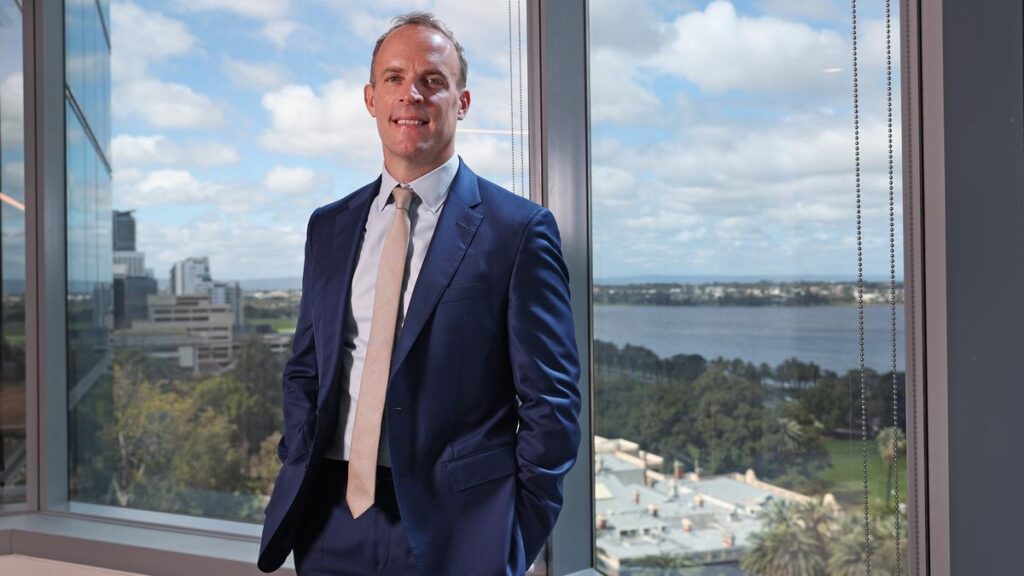
Business - Former UK deputy PM Dominic Raab. He is now chairing a specialist global committee on rare earths and security.
Former UK foreign minister Dominic Raab has issued a stark warning regarding the implications of China’s dominance over the global critical minerals market. He cautioned that manufacturers of essential products, including mobile phones, car batteries, and military equipment, could face significant disruptions if Western nations do not take decisive action to diminish China’s control.
Raab’s comments coincide with a recent agreement announced by Madeleine King, Australia’s Resources Minister, during a visit to the White House. Under this deal, the United States and Australia will each invest $1.5 billion in the critical minerals sector within six months. This funding has the potential to support a pipeline of projects valued at approximately $13 million. King emphasized the importance of this partnership, stating it would create a productive relationship centered on critical minerals and rare earths.
Addressing Market Challenges
Raab, who currently advises the investment firm Appian Capital, described the agreement as a “real statement of intent.” He noted that China currently controls around 90 percent of the global market for critical minerals and rare earths, indicating a highly imbalanced marketplace. “It’s a broken market. It’s certainly not a free market in the traditional sense,” he remarked from Perth, Australia.
To address this disparity, Raab believes substantial government investment is needed to provide seed capital for ventures that may not attract private investment. He highlighted the challenge facing Western investors, who often compete against Chinese companies that benefit from significant state subsidies. “The question is always going to be, how do you level the playing field so that Western investors can compete with the cost when it comes to the cost of capital?” he asked.
A Long-Term Strategy Needed
Raab pointed out that China has been strategically acquiring critical minerals for over two decades, while other nations have been slow to recognize the urgent need to secure their own supply chains. He expressed concern that many industrial manufacturers are overly focused on short-term shareholder cycles, which may jeopardize their future viability. “In a relatively short order, a number of a few years, if they don’t have these supply chains, their business model will be totally torpedoed,” he warned.
The recent investment agreement between the US and Australia represents a critical step in addressing these concerns, but Raab insists that sustained commitment and funding from governments will be essential for long-term success. As the world grapples with the realities of a shifting global economy, the focus on critical minerals will likely become increasingly pivotal in shaping future industrial strategies.







